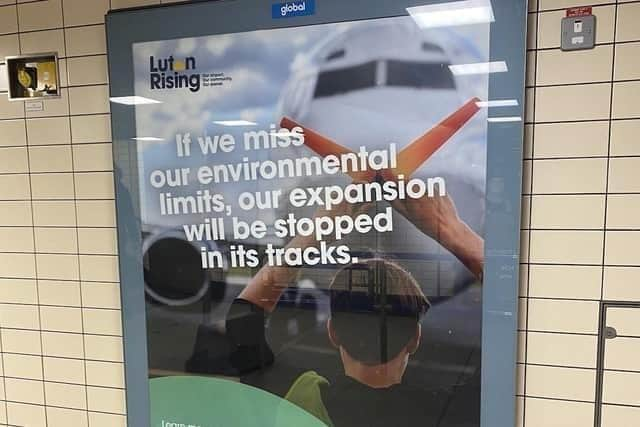Discover how Luton’s community adapts to road closures and infrastructure upgrades, turning short-term disruption into long-term sustainability and resilience. Learn more now!
Luton Rising’s Airport Expansion Adverts Banned by Watchdog for Being ‘Misleading’
In a significant move that underscores the importance of transparency, the Advertising Standards Authority (ASA) has banned Luton Rising’s adverts promoting the expansion of Luton Airport. The decision came after a wave of complaints from environmental groups who claimed the adverts were misleading. This ruling raises questions about the ethical responsibilities of companies when advertising large-scale projects with potential environmental impacts.

Introduction
Luton Rising, the public-private partnership responsible for Luton Airport, has faced a major setback as their promotional adverts for the airport's expansion were banned by the UK’s advertising watchdog, the ASA. Environmental groups had raised concerns about the veracity of the claims made in these adverts, prompting an investigation which concluded that the adverts were indeed misleading. This incident highlights the tension between development ambitions and environmental stewardship, sparking a broader conversation about sustainable growth.
The ASA Ruling
The ASA’s decision to ban Luton Rising’s adverts came after detailed scrutiny of the claims made regarding the environmental impact and benefits of the airport's proposed expansion. According to the watchdog, the adverts made bold assertions about sustainable practices and economic benefits without adequate substantiation.
"The adverts suggested that the expansion would be a boon for the local economy while being environmentally considerate," the ASA report stated. "However, upon closer examination, we found these claims to be lacking in robust evidence, leading to a potentially misleading portrayal of the project's environmental impact."
Environmental groups argued that the projected increase in air traffic resulting from the expansion would lead to significant rises in noise pollution and carbon emissions, contradicting the 'green' image painted by the adverts. The ASA's ruling reflects the necessity for advertisers to provide clear and factual information, particularly on matters concerning environmental impact.
Reaction from Environmental Groups
Environmental activists have lauded the ASA's decision as a victory for truth and accountability. Groups such as Friends of the Earth and Greenpeace had spearheaded the complaints, asserting that Luton Rising's adverts downplayed the environmental harm that could result from the expansion.
"Misleading adverts like these are dangerous because they can sway public opinion and policy based on false assurances," said a spokesperson for Friends of the Earth. "It is paramount that environmental impacts are communicated accurately and honestly to the public. This ruling is a step in that direction."
Luton Rising’s Response
Luton Rising has expressed disappointment with the ASA’s ruling but has pledged to review and amend their promotional materials. A statement from the organisation emphasised their commitment to transparency and environmental responsibility.
"We respect the ASA’s decision and will take immediate steps to ensure our future communications are thoroughly vetted and truthful," the statement read. "Our aim remains to develop the airport in a way that brings economic benefits while minimizing environmental impact. We will continue working closely with stakeholders to achieve this balance."
Broader Implications
This incident serves as a cautionary tale for other organisations engaged in large-scale infrastructure projects. It reiterates the critical need for authenticity and substantiated claims in advertising, especially when addressing complex issues like environmental sustainability. With increasing global awareness and activism around climate change, companies can expect greater scrutiny of their environmental claims.
The ASA's intervention also raises awareness among consumers about the importance of questioning and verifying the information presented in advertisements. As public demand for corporate accountability grows, transparent communication will be indispensable for building and maintaining trust.
In conclusion, the banning of Luton Rising’s airport expansion adverts by the ASA marks a pivotal moment in the ongoing dialogue between development and environmental responsibility. It is a reminder that while economic growth is essential, it must not come at the expense of misleading the public or compromising the environment.